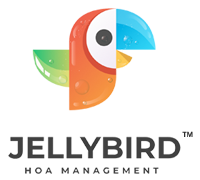Board members take on many tasks to successfully manage their associations. Once such task is finding, verifying, and managing all the vendors that service their community. This process can feel daunting to some board members, but understanding the scope of what managing vendors entails can help make the experience smoother and keep everyone on track throughout the process!
Outline the details of your project.
Before you go searching for the perfect vendor, make sure you have a good idea of the project’s scope. Deciding things like budget, deadlines, and other specifications of the project are all important to know before bringing in any outside help.
This is also the time to seriously consider whether or not the project needs a vendor. More often than not you will need to hire a vendor, as professionals are more equipped to do certain jobs. However, determining what your projects is and what it needs will help you determine whether hiring a vendor is the right move.
Research vendors to find the best fit.
If the board determines that a vendor is needed, speak with your community manager (or community coordinator) about potential prospects. Many property management companies are experts in finding and working with reputable vendors. Relying on your community coordinator for a list of vendors that the board can solicit bids from is one of the best ways to ensure that the vendor you hire meets not only your standards, but the standards of any local and state laws.
Solicit bids and choose a vendor.
When soliciting bids, be sure to provide all vendors with a robust request for proposal (RFP) or scope of work. The more detail provided to the vendors, the more accurate and detailed their response will be.
After reviewing bids from the top vendors and choosing the best fit, do not sign vendor proposals. Always ensure an actual contract is signed detailing timelines, scope, checklists, payment items, etc. This will keep everyone safe throughout the project’s duration.
Always keep the vendor in the loop.
As things progress, remember to keep an open line of communication with your vendor. Some ways you can efficiently communicate are:
- Choosing one primary contact for the project from the Board. (This allows streamline directions and expectations to the vendor.)
- Check-in on large projects weekly to ensure timelines are being met.
- Plan on-site meetings/inspections during the process with the vendor.
- Be sure to praise performance that goes beyond expectation as well as give constructive criticism if something is off; this will tell the vendor what they should keep doing and what they should continue to work on
Working with vendors takes thoughtful planning, communication, and flexibility. Keeping an open line of communication between the board and vendor can keep a project running smoothly and create beautiful upgrades to your community!

